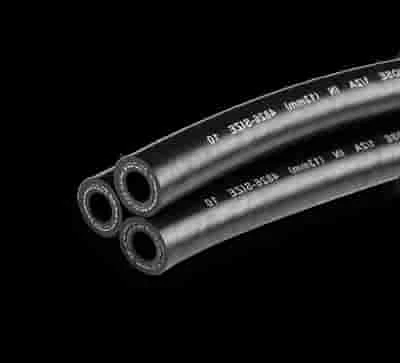gasoline fuel hose
Dec . 21, 2024 11:42 Back to list
gasoline fuel hose
The Importance of Gasoline Fuel Hoses in Modern Automotive Engineering
In the realm of automotive engineering, one might not initially consider the humble fuel hose as a critical component. However, gasoline fuel hoses play a pivotal role in ensuring the efficiency, safety, and reliability of vehicles. Understanding their significance, construction, and maintenance can greatly enhance the performance and longevity of any fuel system.
Gasoline fuel hoses are specifically designed to transport fuel from the tank to the engine. They are typically constructed from durable materials such as rubber or thermoplastic, with layers that provide strength, flexibility, and resistance to various environmental factors including heat, ozone, and fuel additives. The construction of these hoses often includes reinforced layers to prevent collapse under pressure, as well as protective coatings to guard against abrasion and external damage.
One of the primary functions of gasoline fuel hoses is to withstand the specific physical and chemical properties of gasoline. The inner lining must resist the corrosive nature of the fuel while preventing leaks that could lead to catastrophic failures. A proper seal is crucial; even a minor leak can result in financial loss due to fuel wastage or, more concerning, create a fire hazard that endangers lives and property.
Safety standards for fuel hoses are stringent, given the risks associated with gasoline. Regulations require that these hoses undergo rigorous testing to ensure they can handle the pressures and temperatures typical in vehicle fuel systems. Furthermore, innovations in hose technology have led to the development of products that can handle higher ethanol blends, which are increasingly common in modern fuel formulations.
gasoline fuel hose

Maintenance of gasoline fuel hoses is essential for vehicle owners. Over time, hoses can become worn or damaged from exposure to heat, UV rays, and the rigorous motion of the engine. Regular inspection for signs of cracking, swelling, or leaks can prevent costly repairs down the line. It is often recommended to replace fuel hoses every 4 to 6 years, though vehicles subjected to harsher conditions may necessitate more frequent checks.
The installation of gasoline fuel hoses requires careful attention to detail. Proper fitting is crucial to ensure a tight seal and prevent leaks. Mechanics usually adhere to manufacturer specifications when selecting hoses, as different vehicles may require hoses with specific diameters and lengths. Using incorrect hoses can compromise the performance of the entire fuel system.
In recent years, advancements in technology have led to the creation of more efficient and environmentally friendly fuel hoses. Biofuel-compatible hoses, for instance, are a response to the growing market for alternative fuels. These hoses are designed to handle not only traditional gasoline but also various blends that include renewable resources, supporting the automotive industry's shift towards more sustainable practices.
In conclusion, gasoline fuel hoses may appear to be simple components, but their role in automotive engineering is far from trivial. They are essential for the safe and efficient operation of vehicles, and their construction, maintenance, and installation must be approached with the utmost seriousness. As the automotive industry continues to evolve with advancements in technology and a more profound commitment to sustainability, the significance of gasoline fuel hoses will only continue to grow. For vehicle owners and manufacturers alike, understanding this critical component is key to ensuring optimal performance and safety in every journey.
